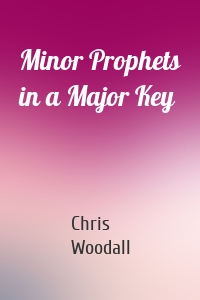Chris Woodall
4 кн.
Atonement
Theologians are constantly accused of only speaking in theories, positing arguments to be considered by the mind with little bearing on the practicalities of life. This view is both blinkered and generally unjust, but it is also the case that some fit that description without perhaps realizing it. Chris Woodall argues that doctrine is not only a compelling tool but also a critical one, without which we would struggle to understand God's purpose or our place in it. The atonement is not a...
| Автор | Chris Woodall |
Covenant
The premise of this book lies in its title. God makes himself known to us in a number of ways: through the created order, by way of human conscience, the unfolding of world events, the inherent religious need in man, through his written Word, and ultimately, of course, in the Person of Jesus Christ. Why he does so is a mystery, which we can only assign to sovereign choice. The basis upon which he does so, however, is covenant. This being the case, not only is the idea of covenant a valid...
| Автор | Chris Woodall |
Kingdom
It has been said that history teaches us that history teaches us nothing. However true this may be in general terms, the fact that we so frequently look to the past in an attempt to shape our future by applying its lessons in the present suggests we remain keen to learn. In the context of the subject of this book, though the stalwarts of the faith can serve as tremendous examples, it is to the lessons of Scripture that we must turn if we are to have a better idea of what the kingdom of God is,...
| Автор | Chris Woodall |
Minor Prophets in a Major Key
All Scripture is God-breathed, but not every portion of it is embraced by Christians with equal vigor. Tribal lists, specific sacrificial obligations, seemingly endless genealogical records, and apparently gratuitous acts of warfare are readily scanned over. But could the minor prophets be added to that list? Should they be? They certainly seem more difficult to locate for many of us than, say, the books of Moses or the Psalms. The writer is clear in his assessment from the start, positing that...
| Автор | Chris Woodall |





